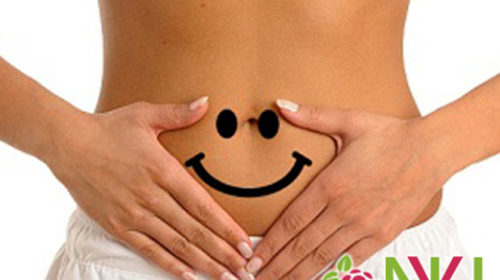Bloated, constipated, gassy, crampy, heavy, loose stools- just plain uncomfortable? One minute you can’t go to the loo and the next minute you can’t get off of it?
The likely cause is Irritable Bowel Syndrome (IBS). It’s incredibly common. According to Guts UK, a charity set up to promote awareness of and funding for digestive problems, it affects up to a third of people at some stage or another and it is one of the main reasons people visit their doctor.
Unfortunately, according to the NHS, there’s not a lot you can do. The official view is that it’s a lifelong problem that no one really understands and that there’s no cure for (although over-the-counter medicines can help symptoms). So sorry, move along and deal with it yourself.
As nutrition professionals will tell you, there IS hope. A consultation with a nutrition professional specialising in digestive health can help provide some natural solutions for you, if you prefer not to take over-the-counter medication. AND your nutritionist can help you get to the bottom of what is causing your IBS symptoms (excuse the pun), so that you can take steps to start feeling your best.
Causes
SIBO– One of the most common causes of IBS is SIBO (small intestinal bacterial overgrowth). Experts estimate that 60% – 80% of people with IBS actually have SIBO. This describes a condition where bacteria manage to grow and thrive in the small intestine. It’s not a question of ‘good’ or ‘bad’ bacteria. There shouldn’t really be many there at all.
Lactose/Fructose Intolerance– It might be that you have a lactose intolerance. This is when your body is not able to tolerate lactose, a type of sugar found naturally in milk and other dairy products, leading to a host of ‘IBS symptoms’. It might similarly be fructose malabsorption. Again, some people are not able to absorb fructose and symptoms are very similar to lactose intolerance.
Dysbiosis– is an imbalance in the normal levels of beneficial (good) and pathogenic (bad) bacteria in the large intestine or colon. It can potentially be caused by the overuse of antibiotics or alcohol, other medications such as the contraceptive pill, an increase in high sugar diets, and stress.
Yeast overgrowth– Candida normally co-exists with many other types of bacteria, in a state of balance. We all have small amounts of Candida growing in our digestive tracts and living on our skin, usually kept in check by our “friendly” bacteria. When the gut environment gets out of balance (due to dysbiosis) we become vulnerable to overgrowth of yeast.
In some cases, digestive problems can be tricky to solve, and it almost always involves a lot of detective work. Although IBS might be very common, it is not normal to experience these symptoms. If your symptoms are hampering your life in a significant way, please know that there ARE things you can do. You don’t need to feel resigned to living with them for the rest of your life.
What can I do about my IBS now?
There are some simple tricks you can put into practice today and that might make enough of a difference to help you get your life back on track. I’m going to tell you what they are in a moment.
It might be helpful to clarify a few things in your mind first. To what degree do your symptoms bother you? Do you feel OK with finding temporary solutions for your symptoms? Are you feeling positive that they will eventually go on their own? The answers to these questions might be enough for you to keep going as you are. If it isn’t, please contact me to book in a free 30-minute digestive health call to get an idea of what might be possible for you.
10 ways to improve your digestion
The following suggestions are very simple, but surprisingly effective for many clients at improving their symptoms of digestive distress.
DO
- Try a cup of hot water or ginger tea (just chop up fresh ginger and steep in hot water) before meals to stimulate digestion.
- Apple cider vinegar also works – take 1tsp before a meal in a bit of water or as part of a salad.
- Eat bitter greens as a starter to stimulate your digestion- these are green, leafy vegetables like spinach, rocket, watercress, kale, broccoli rabe, cabbage, collard greens
- Try a few cubes of pineapple or papaya before a meal. These contain enzymes that can boost your digestion. You might also consider taking a natural digestive enzyme supplement from a health food store to support your body’s natural digestion process.
- Think about your food before eating it – the thought and smell kickstarts the digestive process so that stomach acid and digestive enzymes are produced, which help break down your food.
- Make sure you’re chewing properly so your digestive tract has an easier time breaking down your food. Digestion starts in your mouth as soon as you start to chew your food. Chewing signals your salivary glands to start producing saliva, which contains enzymes that help you break down food. If you had to spit out the mouthful, no one should be able to tell what you’ve been eating.
- Take a 15-minute walk after eating if you can. This lowers blood sugar levels and gets your digestive system moving (see, your granny was right).
DON’T
- Eat at your desk at work. Getting up and out is important for so many reasons. But in this case, checking emails while you are also eating may make you wolf down your food and/ or not chew properly. Neither are good for your digestive health.
- Try to eat on the go or when you’re stressed out. You won’t digest your food properly or absorb the nutrients. This is the quickest way to get heartburn and bloating.
- Don’t eat fruit aftera meal. Fruit likes a quick passage through the digestive system. It can get stuck behind other foods that are digested more slowly and then ferment, causing gas.
- Although there isn’t much scientific evidence yet for this, many people find that drinking too much water or other fluids with their meal slows down digestion. This is because the extra fluid is thought to dilute stomach acid which is needed to break down food properly. The best thing is try and see if it helps you or not.


